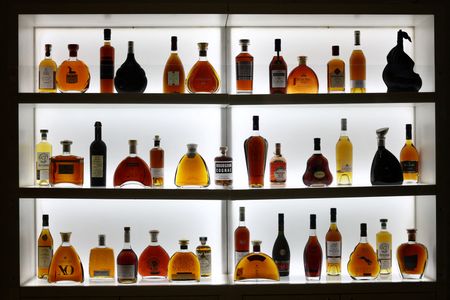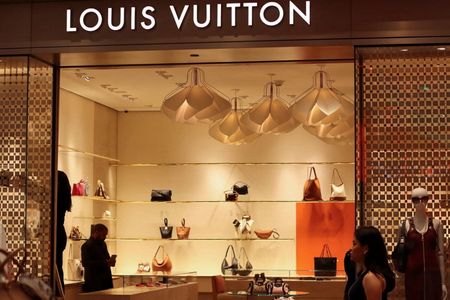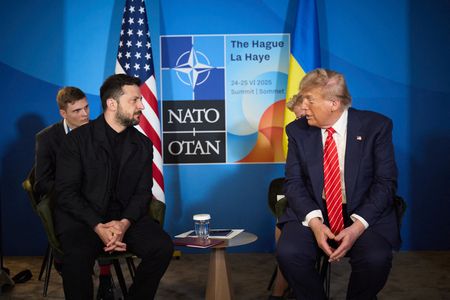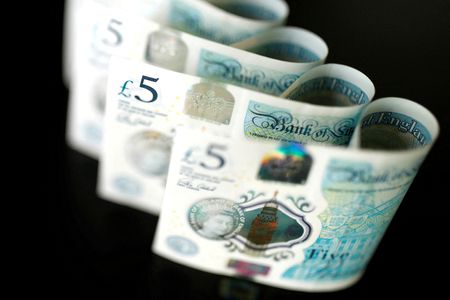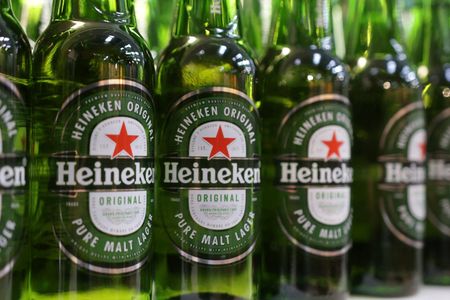By Emma Rumney and Jessica DiNapoli
LONDON/NEW YORK (Reuters) -European Union wine and spirits producers could emerge among the few winners of a EU-U.S. trade deal agreed at the weekend that some European officials consider unbalanced.
The high-level agreement, which imposes a 15% baseline duty for most EU goods entering the United States, is set to include tariff exemptions for some agricultural products, still to be hammered out.
Alcoholic beverages could be among those, according to trade and industry officials.
“We are optimistic that in the days ahead this positive meeting and agreement will lead to a return to zero-for-zero tariffs for U.S. and EU spirits products,” Distilled Spirits Council President and CEO Chris Swonger said in a statement in response to the U.S.-EU agreement.
On Monday, French Trade Minister Laurent Saint Martin also said he expected the spirits sector to be exempted from U.S. tariffs.
If confirmed, an exemption would offer a lifeline to alcohol players including the world’s biggest spirits maker, Diageo, Pernod Ricard, Remy Cointreau and Campari, all of which are very exposed to vast U.S. market and whose profits have already taken a big hit as consumers spend less on drink.
Shares in Pernod, Diageo and Campari initially rose in early trade. But they stood 1.3%, 0.4% and 0.3% lower by 0707 GMT. Shares in Remy fell 2.2%.
Alcohol is among the EU’s top exports to the United States, worth about 9 billion euros ($10.5 billion) in 2024, according to Eurostat data, with certain products like Remy Martin cognac and champagne required to be produced in specific European regions.
About one-third of all exports of Irish whiskey such as Pernod Ricard’s Jameson are destined for the United States.
Earlier in July, President Donald Trump had threatened a crippling 30% tariff that some industry experts said could stop flows of certain EU goods towards the United States.
The United States accounts for about 18% of exports for another exclusively French product, champagne.
Of all exports of cognac from its namesake region in France, about 43% end up in the United States. LVMH owns Hennessy Cognac.
Remy Cointreau, which makes more than 70% of its sales from French-made cognac, is among the alcohol makers hit hardest by tariffs. It has pegged the hit from tariffs imposed globally at about 45 million euros.
For cognac makers, the U.S. tariffs represent a fresh challenge after producers of the drink managed this month to avert the threat of duties of up to around 35% from China.
For Spanish and Italian wines, around 14% and 24% of total exports, respectively, are sold in the United States.
Beer brewers and makers of popular ready-to-drink cocktails will, however, continue to face tariffs on imported aluminum they may use for cans. Under the EU-U.S. deal struck on Sunday, Washington will continue to impose a levy of 50% on steel and aluminum entering the United States.
($1 = 0.8518 euros)
(Reporting by Jessica DiNapoli in New York, Emma Rumney in London, Elisa Anzolin in Italy and Corina Pons in Spain. Editing by Lisa Jucca and Mark Potter)

